Qinchun Bai
LLM-KT: Aligning Large Language Models with Knowledge Tracing using a Plug-and-Play Instruction
Feb 05, 2025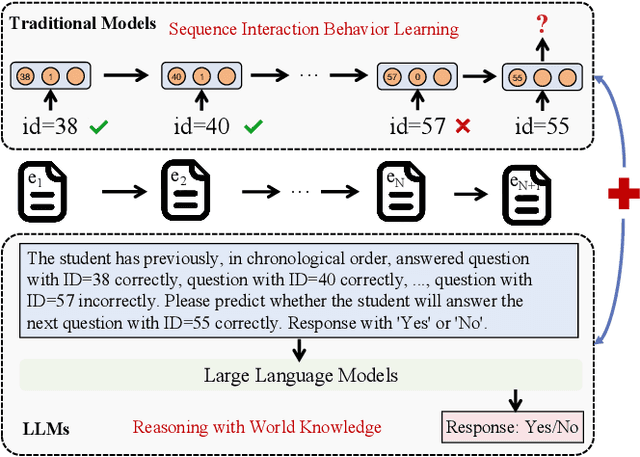

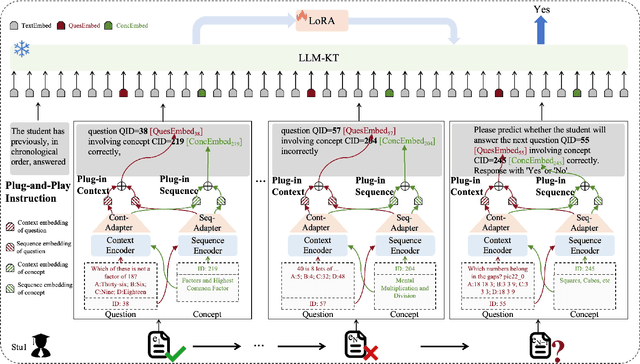
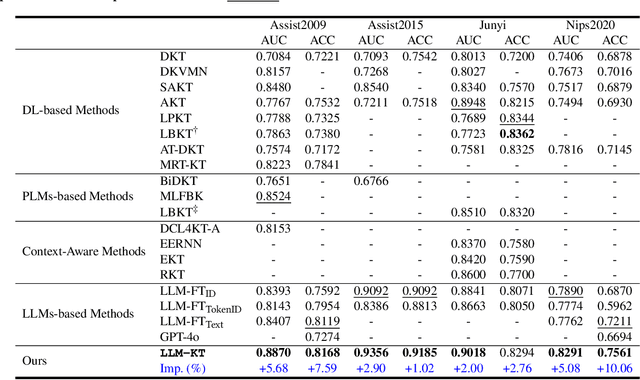
Abstract:The knowledge tracing (KT) problem is an extremely important topic in personalized education, which aims to predict whether students can correctly answer the next question based on their past question-answer records. Prior work on this task mainly focused on learning the sequence of behaviors based on the IDs or textual information. However, these studies usually fail to capture students' sufficient behavioral patterns without reasoning with rich world knowledge about questions. In this paper, we propose a large language models (LLMs)-based framework for KT, named \texttt{\textbf{LLM-KT}}, to integrate the strengths of LLMs and traditional sequence interaction models. For task-level alignment, we design Plug-and-Play instruction to align LLMs with KT, leveraging LLMs' rich knowledge and powerful reasoning capacity. For modality-level alignment, we design the plug-in context and sequence to integrate multiple modalities learned by traditional methods. To capture the long context of history records, we present a plug-in context to flexibly insert the compressed context embedding into LLMs using question-specific and concept-specific tokens. Furthermore, we introduce a plug-in sequence to enhance LLMs with sequence interaction behavior representation learned by traditional sequence models using a sequence adapter. Extensive experiments show that \texttt{\textbf{LLM-KT}} obtains state-of-the-art performance on four typical datasets by comparing it with approximately 20 strong baselines.
Enhancing Event-Level Sentiment Analysis with Structured Arguments
May 31, 2022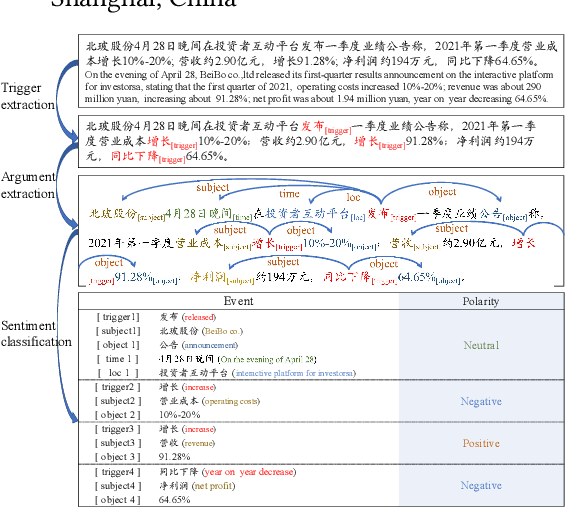

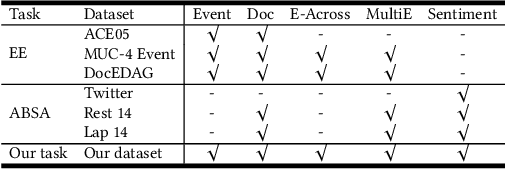
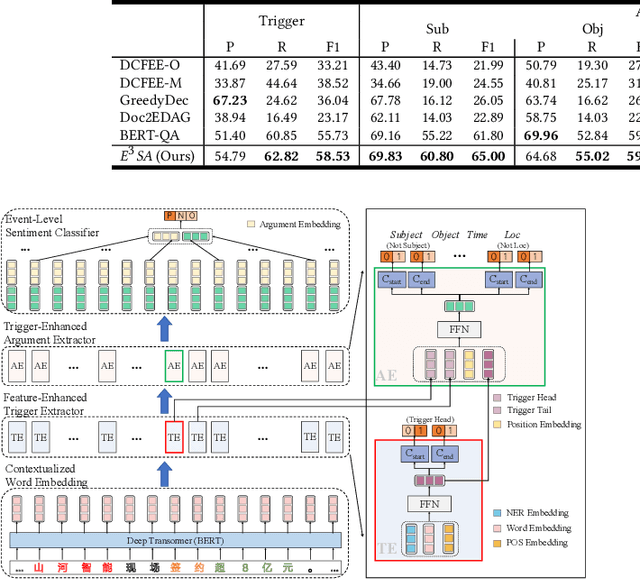
Abstract:Previous studies about event-level sentiment analysis (SA) usually model the event as a topic, a category or target terms, while the structured arguments (e.g., subject, object, time and location) that have potential effects on the sentiment are not well studied. In this paper, we redefine the task as structured event-level SA and propose an End-to-End Event-level Sentiment Analysis ($\textit{E}^{3}\textit{SA}$) approach to solve this issue. Specifically, we explicitly extract and model the event structure information for enhancing event-level SA. Extensive experiments demonstrate the great advantages of our proposed approach over the state-of-the-art methods. Noting the lack of the dataset, we also release a large-scale real-world dataset with event arguments and sentiment labelling for promoting more researches\footnote{The dataset is available at https://github.com/zhangqi-here/E3SA}.
 Add to Chrome
Add to Chrome Add to Firefox
Add to Firefox Add to Edge
Add to Edge